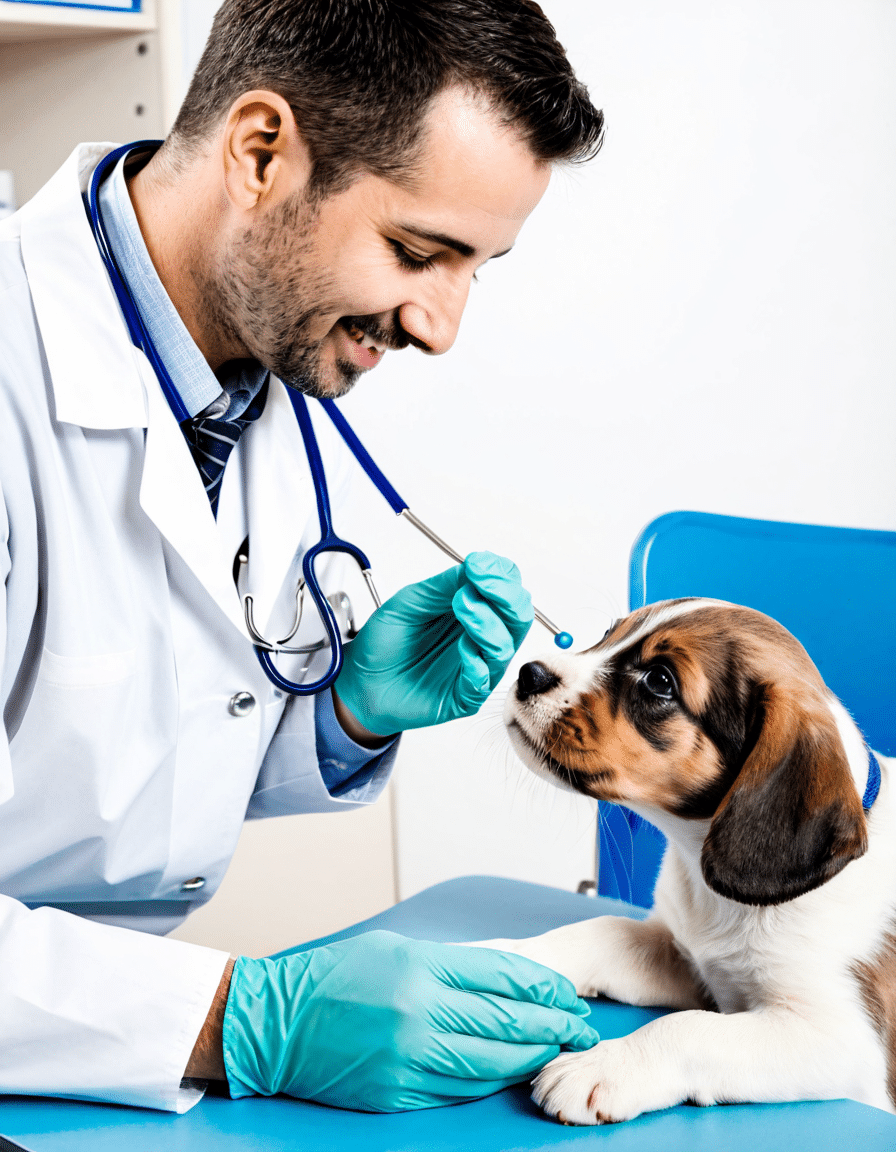Elevated liver enzymes in dogs can alert pet owners to underlying health issues. Recognizing the symptoms early can lead to timely veterinary care, which is crucial for your dog’s recovery. Elevated liver enzymes can be a sign of various health problems, and knowing what to look for can make all the difference. Let’s explore the signs associated with dog elevated liver enzymes, analyze the possible causes, and discuss effective treatment solutions.
Top Symptoms of Elevated Liver Enzymes in Dogs
Increased Thirst and Urination
Dogs with elevated liver enzymes often drink more water and urinate more frequently. These symptoms suggest that the liver is struggling to filter waste effectively. It’s essential to pay attention to how much water your dog is drinking—if it seems excessive, it could be a red flag.
Loss of Appetite or Weight Loss
A sudden decrease in appetite or noticeable weight loss may occur in dogs dealing with elevated liver enzymes. This change often stems from nausea or discomfort that dogs experience due to liver issues. Watching your dog’s eating habits can help you catch problems early.
Vomiting and Diarrhea
Another common symptom is gastric disturbances like vomiting or diarrhea. These signs indicate that your dog’s liver may be having trouble processing its usual dietary intake. If your dog is showing these symptoms alongside increased liver enzyme levels, it’s vital to seek veterinary assistance right away.
Lethargy or Weakness
A drop in energy levels or increased tiredness is another indicator of potential liver issues. Your once-vibrant pup might seem uninterested in their favorite activities. When a dog is battling elevated liver enzymes, it may feel fatigued, leading to a significant drop in its routine energy levels.
Jaundice
Jaundice is a serious symptom where the skin and eyes turn yellow, indicating liver distress. This occurs due to an overload of bilirubin in the bloodstream when the liver is not functioning properly. If you notice any signs of jaundice in your dog, contact your vet immediately as it warrants urgent care.
Behavioral Changes
Your dog’s behavior can also change with elevated liver enzymes. Increased irritability, confusion, or disorientation can all signal an underlying problem. These behavioral nuances are crucial for diagnosing potential health issues.
Abdominal Swelling
Finally, abdominal swelling, also known as ascites, can result from fluid accumulation due to liver dysfunction. If you notice a bloated abdomen, it could indicate that your dog’s liver isn’t working as it should. This symptom might look alarming, so don’t hesitate to consult your veterinarian.

Exploring Causes of Elevated Liver Enzymes
Identifying the symptoms is just one part of the puzzle. Understanding the causes of elevated liver enzymes in dogs is equally important. Several conditions can lead to this concerning issue:
Various household substances can be toxic, causing elevated liver enzymes in dogs. Common culprits include non-steroidal anti-inflammatory drugs like Rimadyl and human medications like acetaminophen. It’s vital for pet owners to be aware of what their dogs have access to.
Several infections can play a role. Diseases like hepatitis, leptospirosis, or even certain cancers can significantly affect liver function. Knowing the symptoms of these conditions can help owners act quickly.
Conditions such as Cushing’s disease and diabetes can also lead to elevated liver enzymes as secondary effects. These disorders place additional stress on the liver.
Long-term health concerns, such as obesity or pancreatitis, can result in sustained liver strain. These chronic issues often manifest as elevated enzyme levels during blood tests, indicating a need for veterinary intervention.
Solutions and Treatment Options
If your dog has elevated liver enzymes, acting quickly is essential for their health. Here are some solutions and treatment options to consider:
Dietary Changes
Altering your dog’s diet can significantly impact liver function. Switching to a specialized diet designed for liver health, such as Hill’s Prescription Diet l/d, can relieve some of the burden on the liver by providing essential nutrients. This diet aims to reduce the workload on the liver, facilitating better overall health.
Medications
Depending on the underlying diagnosis, your veterinarian may prescribe medications such as SAMe (S-adenosylmethionine) or vitamin E to support liver function. Additionally, if infections are the cause, your veterinarian may recommend antibiotics tailored to combat specific issues.
Regular Monitoring
After starting treatment, regular blood tests are vital for monitoring liver enzyme levels. This helps assess the effectiveness of your treatment plan and allows adjustments if necessary. Ongoing assessments are key to ensuring your dog is on the right path.
Hydration Therapy
To help alleviate some symptoms, ensuring your dog stays well-hydrated is crucial. Vets may use intravenous fluids to support hydration during episodes of vomiting or diarrhea, further aiding recovery.
Holistic Treatments
Consider incorporating supplements that may support liver function, like milk thistle or turmeric. While these can be beneficial, consulting your vet before introducing new supplements is essential to avoid any adverse interactions.

Alternate Conditions with Symptoms Overlapping Dog Elevated Liver Enzymes
While elevated liver enzymes are a concern, several other conditions may present similar symptoms. This understanding can guide pet owners in choosing the right course of action.
Holistic Approach to Canine Liver Health
Beyond treating elevated liver enzymes, adopting a holistic approach can promote overall wellness. Encourage gentle exercise appropriate for your dog’s condition and maintain a healthy weight. Creating a stress-free environment reduces the risk of stress-induced issues, like pressure ulcers in dogs, which can arise from limited mobility.
Educating yourselves about pet health—whether it’s recognizing signs of stress cystitis in horses or understanding the dynamics of a rottweiler poodle hybrid—can enhance your capacity to care for your dog. A well-rounded strategy will help bolster your pet’s health in the long run, fostering a stronger bond between you and your furry friend.
Understanding and addressing elevated liver enzymes in dogs involves diligent observation, prompt veterinary consultations, and comprehensive strategies for care. Taking proactive steps promotes your dog’s recovery and encourages a longer, healthier life together. Stay informed and engaged—your dog’s health depends on it!
Dog Elevated Liver Enzymes: Fun Trivia and Interesting Facts
Understanding Dog Elevated Liver Enzymes
Did you know that dogs can experience elevated liver enzymes for a variety of reasons, ranging from diet to health conditions? In fact, studies show that certain breeds, like the American Bull lab mix, may be at a higher risk for liver issues due to genetic factors. It’s essential for dog owners to stay informed about how their pet’s weight, such as a Dachshund’s weight, can also impact their overall health, including their liver function. Keeping your pup at a stable, healthy weight is a vital part of liver health!
Facts That Might Surprise You
Interestingly, elevated liver enzymes might not be the only thing to watch for in your furry friends. For example, did you know that while some animals, like rabbits, can enjoy the occasional treat of carrots, it can be harmful to dogs? Improper dietary choices could exacerbate liver conditions you never even knew were brewing. Additionally, factors like medications or toxins found in your household could affect your dog’s liver enzymes, so keep those cleaning supplies out of reach!
Fun Pet-Related Tidbits
As we delve deeper into the world of dog elevated liver enzymes, it’s fascinating to note that pets can share names or themes with popular culture. Ever heard of the Pussycat Dolls? Just as their dance moves require precision, identifying changes in your dog’s behavior, such as lethargy or loss of appetite, is crucial to spotting liver problems early. By paying attention to your dog’s symptoms and taking proactive steps, you can prevent serious complications down the line. Remember, early detection is key!
So the next time you find yourself wondering if your pup’s liver health is jeopardized, consider all the nuances involved. Whether it’s a quick check on the deion sanders colorado football hype or researching food options, being an informed pet parent goes a long way. Always be ready to monitor your canine companion closely; who knows, this knowledge could just save your dog’s life!



